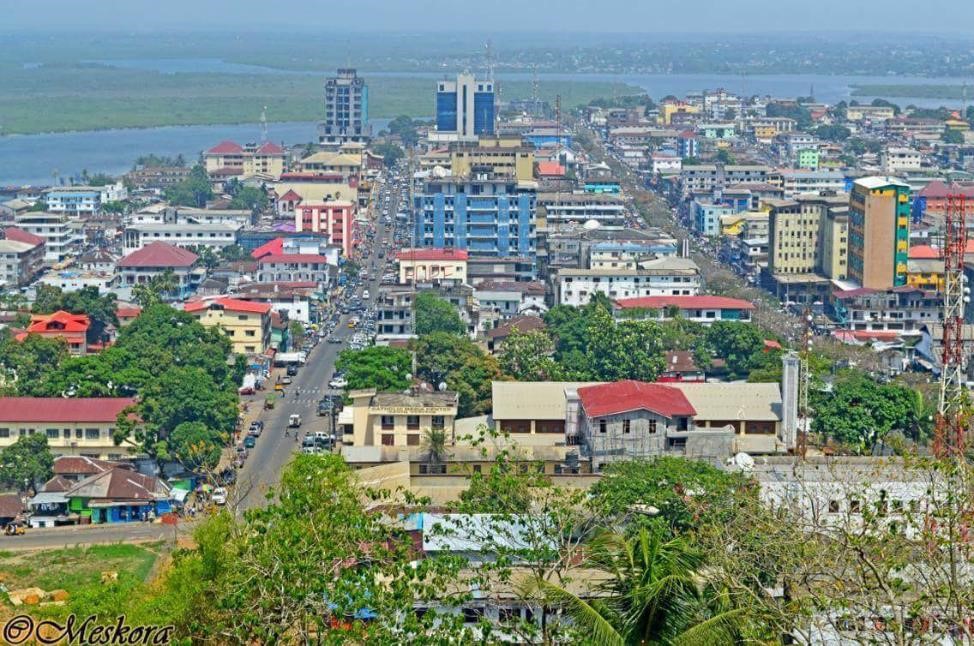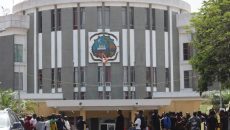Liberia is hoping for a peaceful democratic transition after a decade of Ellen Johnson Sirleaf’s leadership which saw her become Africa’s first female President.  This is a historical moment for Liberia.
Liberia is a neoliberal haven where the state has been hollowed out by the postwar ‘international-local’ experiment of liberal peacebuilding and reconstruction: public-private partnerships, unfettered global capitalism exploiting natural resources, and deterioration of government services.
In parallel, for more than a decade, the international community has basked in the glory of a ‘successful’ stabilization of a failed state headed by a Nobel Peace Prize winner.
On ground, ordinary Liberians live in a country with extremely poor to nonexistent infrastructure (i.e. paved roads, electricity, running water). Employment in the formal sector is extremely low – it hovers between 80 to 90 percent. The state struggles to deliver quality healthcare, education, and security to its citizens. In fact, the state embarked on a controversial pilot program in 2016 for a private-public proposal for public schools, citing its own failure in delivering primary education.
How does one think of Liberia at this critical juncture? Ellen Johnson Sirleaf’s legacy is tinged with both success and controversy. Surely, she deserves the accolades she enjoys as Africa’s first female President. What she accomplished by winning the moral and material support of the Western world is no small feat. What’s more, Liberia also has China by its side as a partner. But her administration has now become synonymous with nepotism, corruption, and mismanagement.
At best, Sirleaf’s main accomplishment has been to lay the foundations of a new post-war state. That Liberia still suffers from acute poverty and that most of the country does not have access to roads, electricity, water, education, and healthcare in the 21st century is a tragedy. This is especially true given that Liberia has enjoyed international support and assistance in the form of a peacekeeping mission, technical and budgetary support, and aid.
The prospects for a progressive future are grim if you’re an ordinary Liberian. Development is coming but at snail’s pace. Who do we hold accountable for what are the postwar compromises and failed promises of a progressive future?
Caught between the goodwill and grand designs of the international keepers of the global order and the governing elites of Liberia who won a new state to rule, who should the public hold accountable?
In the early post-war years, the remnants of state led by a warlord were dismantled and a new one was being erected – growing, decentralizing, and extending its writ beyond Monrovia. It is undergoing soft conditioning to fit 21st-century norms of good governance and liberal nation-building.
The state has a partner in virtually all sectors: international NGOs, private companies, philanthropic organizations, various regional and far-flung governments, etc. Whether it is the paving of a road, training of health workers, garbage collection, or donation of a single piece of equipment to a government hospital, you’ll be bound to read about it in the press, or better still, gaze upon a billboard that is erected for every international gesture. You might not know, though, about aid conditionality and the embedded consultants within ministries that are less obvious.
Dependent on donors and foreign investment, post-war Liberia still has a devastated healthcare and educational system. Major public hospitals in the capital city lack basic equipment, while qualified and trained doctors are very few. Is death from an ordinary ailment (preventable and salvageable) fate or injustice? Donors and international actors would blame corruption.
Public schools and even universities are suffering from lack of materials while children and graduates who stumble out of these institutions are left behind. The provision of electricity through the national grid is proceeding at slow speed. The staple rice has to be imported.
What kind of a society do ordinary Liberians live, in, then? The post-war era has been symbolized by compromise: peace in exchange for not punishing war criminals; giving up Charles Taylor for Sierra Leone and leaving other warlords be; UN-brokered peace missions in exchange for setting up a new state; opting for exploitation of natural resources rather than first committing to land reforms; setting up a Truth and Reconciliation Commission but then dismissing the report; importation of diaspora to form a government; a US-dependent dollar economy for the elites and a local Liberian economy for the majority, etc.
Political compromises are common but besides the setting up of a new state, it is difficult to see what the public got out of these high-level compromises. If anything, the bloated salaries of government officials and the infamous salaries of lawmakers are salts added to decades of a sense of bad history that seems to be on a repeat mode in Liberia.
The Liberian public wants change and accountability. Can any of the 2017 Presidential candidates deliver?
Featured photo courtesy of Meskora Amoussou



